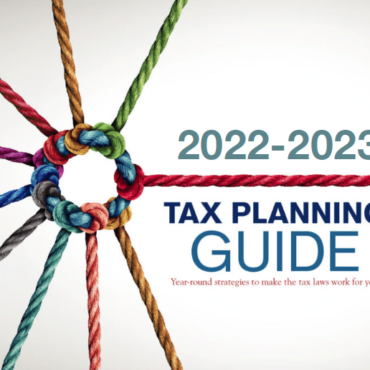Tax Policy Changes Post Election
With the election of President-Elect Donald trump, major changes to the tax laws are not likely to happen until next year, after the January 20, 2017 inauguration.
Below is a list of tax changes proposed by the Trump campaign:
Campaign Ideas for Individual Taxes
- Only three individual tax brackets, with a maximum rate of 33% (now 39.6%).
- Eliminating alternative minimum tax.
- Keeping preferential 15%/20% capital gains rates.
- Ending the 3.8% net investment income tax.
- Increasing childcare tax breaks.
- Taxing private equity partners (“Mitt Romney”) at 33% instead of 20%.
- In exchange for lower tax brackets, itemized deductions are capped at $100K/$200K.
Estate and Gift Tax Proposed Changes
- Trump wants to end the 40% tax on estates over $5.4 Million/$10.9 Million.
- And replace it with a 20% capital gains tax on untaxed gains at death over $10 million.
Business Taxation Ideas in Campaign
- Corporations will have a maximum corporate tax rate of 15%.
- Partnerships and Sub-S Corp income left in businesses will only be taxed at 15%.
- The Section 179 deduction on property purchases would increase from $500K to $1 million.
- Businesses would get a new Childcare Credit.
- Existing R&D Credits will continue.
- Businesses could deduct all new manufacturing investments.
- Some business expenses would disappear in exchange for lower rates.
Other Campaign Items That Affect Taxes
- If Obamacare is repealed or altered, the related taxes and penalties would see a change.
- A 10% tax on corporations with un-taxed profits parked in foreign countries was proposed.
- Many tax breaks known as Extenders will expire at the end of 2016. Lawmakers may extend them in a “lame-duck” session or they may wait for Trump to be sworn into office.
- Extenders include credits for energy, film/TV, railroads, motorsports, and race horses.
President-elect Trump will need to get the changes approved by Congress, which can be a lengthy and unpredictable process. While it may be helpful to know what changes have been proposed, there is simply not enough information available to provide meaningful guidance on how businesses and owners should react.
We will keep you updated as tax changes develop and evolve. If you have any questions, please feel free to contact our partners or tax department.



